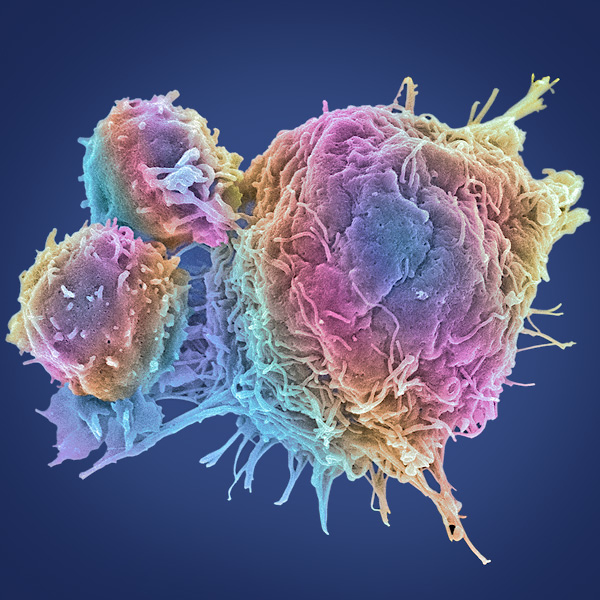Some types of gastrointestinal (GI) cancer have been found to run in families due to a hereditary predisposition. These include some colorectal cancers and certain cancers of the stomach, small intestine and pancreas.
According to the American Cancer Society, approximately 5 percent of all colorectal cancers are due to well-known changes in certain genes, modifications that can be passed down from generation to generation. If you have a relative who has been diagnosed with colorectal cancer or any gastrointestinal cancer at a young age or you have a family history of related malignancies, you may have a higher risk of developing the disease.
Gastrointestinal Cancer Risk Assessment Program at Loyola Medicine
Loyola’s gastrointestinal cancer risk assessment program provides a complete medical evaluation to determine if you or your blood relatives may be at increased risk for developing colorectal and other hereditary GI cancers. If an increased risk is determined, our multidisciplinary team of specialists, including gastroenterologists, colorectal surgeons, genetic counselors, and dietitians, develops a comprehensive strategy to help people with a family history of gastrointestinal or pancreatic cancers make informed decisions about their health.
If you have a genetic predisposition to GI or pancreatic cancers, we will closely monitor you through regular doctors’ visits and screenings such as colonoscopies or endoscopies. This kind of management allows for early detection and even cancer prevention, which can empower you to take control of your cancer risk.
The more we know about the cancer risk in your family, the better we can help you make informed decisions about how to manage the risk and potential problems for you and your parents, siblings, children or even extended family.
Why choose Loyola for GI cancer risk assessment?
What sets Loyola apart is our commitment to whole-person care. We combine leading-edge diagnostics, evidence-based prevention strategies, and compassionate support to help you understand your risk and take proactive steps toward long-term health.
Loyola Medicine offers one of the most advanced gastrointestinal cancer risk assessment programs in the Chicago area. Tailored for individuals with a personal or family history of GI cancers, our program delivers a comprehensive, multidisciplinary evaluation in a single visit.


